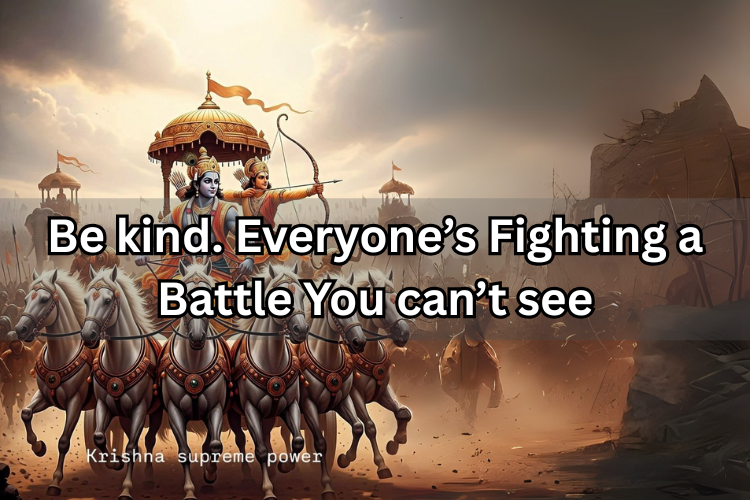We are living through a time where frustration simmers in everyday life—in homes, at workplaces, online, and even in places meant for comfort. And whether we admit it or not, the tendency to judge, dismiss, or hate has grown more common. People are quicker to point fingers than to understand. Quicker to react than to listen.
Even if you agree or not, toxicity in personal spaces and public spaces has grown. There’s often a silent, biased hate towards people. Kindness feels rare. Respect feels conditional. And compassion? Almost absent.
But does it have to be this way?
Hating Is Easy. So why is kindness not easier?
It takes very little to roll your eyes, to ignore someone’s pain, or to be indifferent. You don’t need to know someone’s story to judge them—and sadly, that’s how most people function today. We never know what another person is going through—what they’ve lost recently, what battles they’re quietly fighting.
And that’s exactly why kindness should be the default. It’s not about being perfect or endlessly agreeable. It’s about choosing not to be cruel when cruelty is easy. It’s about offering a little grace in a time when people are barely holding on.
A Thought That Should Guide Us
“Be kind, for everyone you meet is fighting a hard battle.” — Often attributed to Plato
This quote has lasted because it’s honest. Not everyone wears their struggles on their sleeve. Some show up smiling while carrying grief. Others keep quiet while their mind is overwhelmed.
If hating for no reason has become acceptable, then being kind without reason should be too.
Lessons from the Mahabharata on Choosing Kindness
The Mahabharata is not just a story of war; it’s a mirror to human choices. At every stage, it reveals how ego, jealousy, silence in moments of injustice, and unchecked hate lead to irreversible consequences. It shows that conflict doesn’t always begin with violence—it often starts with a lack of kindness.
The epic reminds us that when respect is missing and pride takes over, even the wisest can go astray. Through this, we learn that kindness isn’t a sign of weakness. It’s a conscious decision to act with balance, even when provoked. It is restraint when revenge feels justified, and it is fairness when power is on your side.
In a world that demands instant reactions, the Mahabharata teaches the strength of a pause, the value of compassion, and the wisdom of treating others with dignity, even when you disagree. These are not just lessons from an ancient text—they are tools for modern life, urging us to build spaces that are thoughtful, patient, and human.
Why Kindness Is Not About Being Nice
Kindness is not about being passive or avoiding conflict. It’s about handling disagreement without disrespect. Correcting without shaming. Saying “no” without hurting.
Being kind doesn’t mean you won’t stand up for yourself. It means you won’t tear others down to feel stronger. It means recognizing that everyone is flawed—including you—and choosing to respond with maturity.
Let’s Make Kindness a Habit, Not a Performance
Kindness doesn’t need an audience. You don’t need to post about every good deed. The real kindness is what you do when no one’s watching.
The Mahabharata didn’t end in a clean victory. Everyone lost something. And much of that loss came from unspoken bitterness, pride, and refusal to understand each other.
We don’t need another war. What we need are spaces where people feel seen, not ignored. Understood, not judged.
Read The Mahabharata and build your kindness from within. Let’s not wait for tragedy to teach us empathy.

